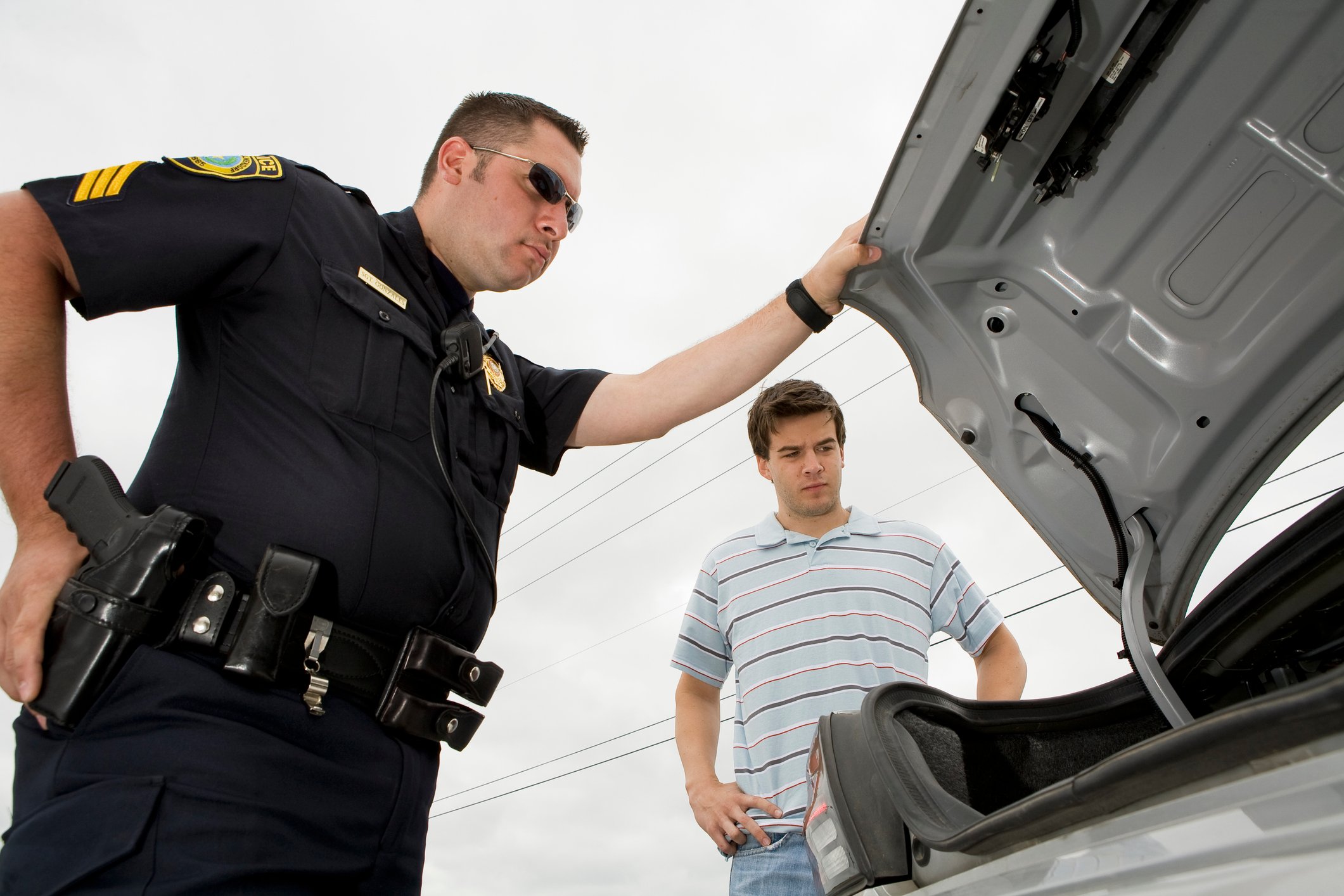
In State v. Vanhollebeke, the WA Supreme Court held that a driver’s refusal to consent to the search of his or her vehicle must generally be respected. But where the facts reasonably raise a significant question about whether the driver had any legitimate claim to the vehicle at all, the police may contact the absent owner and then get that owner’s consent to search instead.
BACKGROUND FACTS
Defendant Justin Vanhollebeke drove his truck the wrong way down a one-way street. Not surprisingly, an officer stopped him. Vanhollebeke ignored the officer’s command to stay in the vehicle, got out and locked the vehicle behind him, left a punched out ignition and apparent drug paraphernalia behind in plain view of the police, and had no key. The police asked Vanhollebeke for consent to search the vehicle. Vanhollebeke refused. A police officer then contacted the truck’s owner, received the absent owner’s consent and a key to search, and then returned to search the vehicle.
Vanhollebeke was charged with unlawful possession of a firearm found in the truck.
Vanhollebeke moved to suppress the fruits of the search, arguing that the warrantless search was unconstitutional. The trial court denied the motion, reasoning that there’s a reduced expectation of privacy in a borrowed vehicle. The trial court made no explicit findings of fact regarding the officers’ motivation for contacting Mr. Casteel. Vanhollebeke was found guilty, sentenced to 34 months confinement, and assessed fees of $1,380. He appealed on the issue of whether the search was constitutional.
COURT’S ANALYSIS & CONCLUSIONS
The WA Supreme Court reasoned that warrantless searches are presumptively unconstitutional, unless they fit within one of the few, narrow exceptions to the warrant requirement. Under both the Washington and United States Constitutions, warrantless searches are per se unreasonable. However, there are a few jealously and carefully drawn exceptions to the warrant requirement.
“One of those exceptions is for consent, and consent is the exception at issue here,” said the Court. It elaborated that consent to a search establishes the validity of that search if the person giving consent has the authority to so consent. Furthermore, the Court reasoned that while the driver of an absent owner’s vehicle does not ordinarily assume the risk that the absent owner will consent to a search, the driver does assume that risk where the facts reasonably suggest it is stolen.
Next, the Court adopted and applied the Fourth Amendment standard for valid third-party consent to a search is a two-part test: (1) Did the consenting party have authority to permit the search in his own right? And if so, (2) did the defendant assume the risk that the third party would permit a search? Both this Court and the United States Supreme Court refer to this test as the “common authority rule.” In short, the common authority rule refers to a legal principle that permits a person to give consent to a law officer for the purpose of searching another person’s property. The common-authority rule provides for searches without warrant. The principle can be applied only when both parties have access or control to the same property.
The Consenting Party Had Authority to Permit the Search.
The WA Supreme Court held that here, the consenting party, the owner, clearly had the authority to consent to the search in his own right. “There is no dispute that the first part of the test is satisfied in this case as the truck’s owner, Casteel, could clearly consent to its search in his own right,” said the Court. “The driver of a car owned by another does not ordinarily assume the risk that the owner will consent to a search.”
Vanhollebeke, by Borrowing Casteel’s truck, Assumed the Risk that Casteel Might Allow Others to Search It.
The Court held that the evidence in this case gave the officers good reasons to believe the vehicle was stolen. This driver, without a key or identification and with a punched out ignition clearly visible, therefore assumed the risk that the police would contact the absent owner and seek consent to search.
The Court elaborated that this reasoning is consistent with the reasoning in the United States Supreme Court’s “common authority” cases that legitimation of expectations of privacy by law must have a source outside of the Fourth Amendment, either by reference to concepts of real or personal property law or to understandings that are recognized and permitted by society.
“The search in this case did not violate the Fourth Amendment,” concluded the Court.
Please contact my office if you, a friend or family member are charged with a crime. Hiring an effective and competent defense attorney is the first and best step toward justice.






